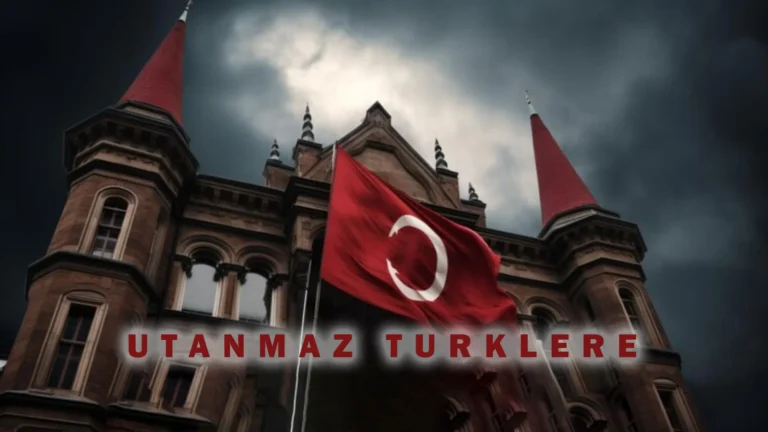Utanmaz Türklere—a term that might not be immediately familiar to all—refers to a particular perspective or sentiment about Turkish culture and people. Translating roughly to “Shameless Turks,” this phrase can have varying connotations depending on its usage and context. In this article, we will explore the origins, cultural implications, and perceptions surrounding this term, while aiming to provide a nuanced understanding of its significance in contemporary discourse.
TRENDING
FintechZoom: The Ultimate Guide To Investing In Luxury Watches
Understanding The Term: What Does Utanmaz Türklere Mean?
Utanmaz Türklere is a phrase that can evoke strong reactions, both positive and negative. The term combines “utanmaz,” meaning “shameless,” with “Türklere,” referring to “Turks.” To understand its implications, it is crucial to dissect how these words interact and what they reveal about cultural attitudes.
The Etymology of Utanmaz
The word “utanmaz” implies a lack of shame or modesty. In various cultural contexts, shame is often seen as a social regulator, keeping individuals within accepted norms and behaviors. Thus, “utanmaz” can carry a pejorative connotation, suggesting a deviation from these norms.
The Cultural Context of Türklere
The term “Türklere” denotes the Turkish people. Turkish culture, rich and diverse, has undergone significant transformations over the centuries, influenced by historical, political, and social factors. The phrase, therefore, might reflect an outsider’s critical perspective or an internal critique.
Historical And Cultural Background
The Ottoman Empire Legacy
The Ottoman Empire, which lasted from the 14th to the early 20th century, left a profound impact on Turkish culture. During this period, various cultural and social practices evolved, shaping the modern Turkish identity. The legacy of the Ottoman Empire includes both a sense of pride and complex perceptions from other cultures.
Modern Turkey And Cultural Shifts
Modern Turkey, established in the early 20th century, has seen dramatic changes in its social and cultural fabric. The transition from an Ottoman Empire to a secular Republic under Mustafa Kemal Atatürk involved substantial reforms, influencing how Turkish identity is perceived both internally and externally.
The Perception of “Shamelessness”
Internal Perspectives
Within Turkey, the concept of “shamelessness” might be viewed differently. Some might see it as a critique of changing social norms, while others might view it as a reflection of new forms of expression and identity. For many, it could be a call to question traditional values and adapt to modern realities.
External Perspectives
From an external viewpoint, “Utanmaz Türklere” could represent a misunderstanding or critique of Turkish customs and behaviors. Cultural differences can lead to misinterpretations, where behaviors considered normal in Turkey might be viewed as “shameless” or inappropriate by outsiders.
Cultural Misunderstandings And Stereotypes
Stereotyping and Its Impact
Cultural stereotypes often arise from incomplete or biased understandings of a society. The term “Utanmaz Türklere” can be a result of such stereotypes, where Turkish behaviors or customs are viewed through a narrow or prejudiced lens. These stereotypes can perpetuate misconceptions and contribute to cultural tensions.
The Role of Media and Literature
Media and literature play significant roles in shaping perceptions of different cultures. How Turkish culture is represented in international media can influence how terms like “Utanmaz Türklere” are perceived. Misrepresentation or sensationalism can exacerbate stereotypes and contribute to a skewed understanding of Turkish identity.
Addressing And Navigating Cultural Sensitivities
Promoting Cross-Cultural Understanding
To address cultural sensitivities surrounding terms like “Utanmaz Türklere,” it is essential to promote cross-cultural understanding. Engaging in open dialogue, education, and cultural exchange can help bridge gaps and foster mutual respect between different cultures.
Encouraging Nuanced Perspectives
Encouraging nuanced perspectives on Turkish culture can help dismantle stereotypes and promote a more accurate understanding. Recognizing the diversity within Turkey and acknowledging the complexity of cultural identities can lead to more respectful and informed interactions.
Conclusion
The term Utanmaz Türklere reflects a complex interplay of cultural perceptions and stereotypes. Understanding its origins and implications requires a deeper exploration of Turkish history, cultural dynamics, and the impact of external perceptions. By fostering cross-cultural dialogue and promoting a nuanced view of Turkish identity, we can move towards a more inclusive and respectful understanding of different cultures.
ALSO READ: Jen Psaki Nude: Addressing Privacy Concerns And Media Integrity
FAQs
What is “Utanmaz Türklere”?
“Utanmaz Türklere” translates to “Shameless Turks.” It refers to a phrase that evokes strong reactions about Turkish culture and people. The term combines “utanmaz,” meaning “shameless,” with “Türklere,” referring to “Turks.” Its use and interpretation can vary widely, reflecting both internal critiques and external perceptions of Turkish society.
How does the historical context of the Ottoman Empire influence the term “Utanmaz Türklere”?
The Ottoman Empire’s legacy, including its cultural practices and societal norms, has shaped modern Turkish identity. The term “Utanmaz Türklere” may reflect historical tensions or transformations that occurred as Turkey transitioned from the Ottoman era to a secular republic, impacting how Turkish behaviors are perceived both domestically and internationally.
What role does modern Turkish society play in the perception of “shamelessness”?
In modern Turkey, the concept of “shamelessness” can be viewed as a challenge to traditional values or as an expression of new identities and freedoms. This perspective might differ from that of outsiders, who may misinterpret or judge Turkish cultural expressions based on their own norms and biases.

